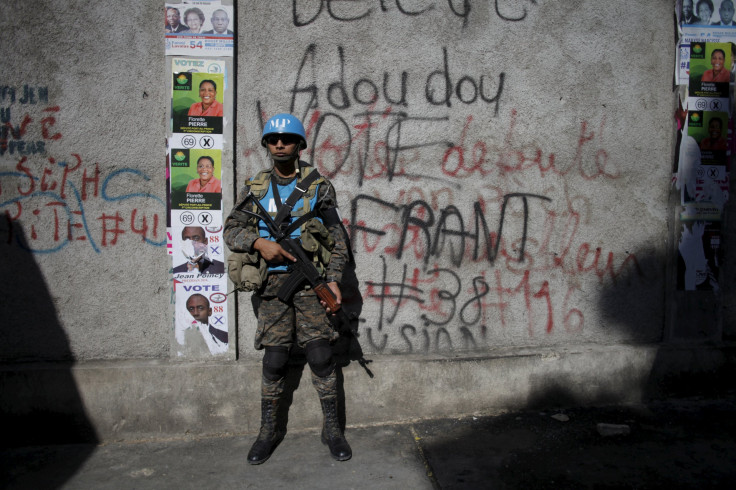Voting In Landmark Haiti Elections Calm Amid Tight Security

PORT-AU-PRINCE (Reuters) - Voting in Haiti on Sunday appeared to be going smoothly in landmark elections for president as well as a parliament dissolved since January, polls that officials hope will cement democracy in the Western hemisphere's poorest country.
There were no reports of major problems by mid-afternoon, in sharp contrast to a first round of legislative elections in August, according to a tour of polling stations in the capital by Reuters and unconfirmed reports from rural provinces.
"This is much better," said Pierre Esperance, director of the National Human Rights Defense Network. "The police are taking their responsibilities more seriously," he added, alluding to criticism of lax policing of polling stations in August.
If all goes well, it will be first time in Haiti's rocky political history that three democratic elections have been held in succession without interruption by fraud or armed rebellion.
More than 5 million registered voters are choosing from 54 presidential candidates.
The successor to President Michel Martelly next February is expected to be one of two candidates: Jovenel Moïse, owner of a banana-exporting business in the north of the country, and Jude Célestin, a Swiss-educated mechanical engineer who previously headed a government construction agency.
Moïse, 37, represents the ruling Parti Haitien Tet Kale (Haitian Party of Bald Heads) named after Martelly's famously smooth scalp.
He is running neck and neck in polls with Célestin, 53, who heads the LAPEH Party (Alternative League for Progress and Emancipation of Haiti).
A run-off for the presidential race between the top two candidates is scheduled for Dec. 27.
Martelly, a popular singer, shook up the political order with his election victory in 2011 as the country was still reeling from a devastating earthquake. But critics say he failed to halt corruption and political infighting.
The Caribbean nation of about 10 million people has struggled to build a stable democracy ever since the overthrow of the dictatorship of the Duvalier family, which led Haiti from 1957 to 1986, and ensuing military coups and election fraud.
The legislative vote is crucial to fill a vacuum after Haiti's parliament dissolved in January when terms ran out on sitting members due to elections being long delayed.
Security was tightened after violence by gangs of rival political activists disrupted voting in August's first round.
Haiti’s 12,000-strong National Police lacks resources and a longstanding U.N. security force in Haiti is also at its lowest level in a decade.
© Copyright Thomson Reuters 2024. All rights reserved.





















